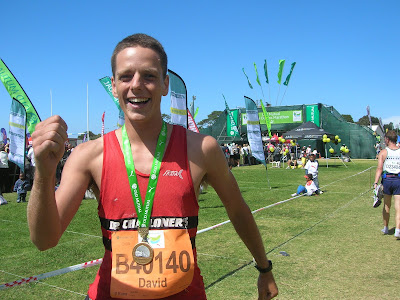Xenophobia changes Cape Town



It started on Friday afternoon. My boss Nathan, noctantely asked me to go upstairs to help Fatima in the AIDS Law Project. There had been a few small reports of xenophobic violence Cape Town the night before and Fatima needed establishing if there had been any more. A week ago, in Johannesburg far on the other side of the country , violence against foreigners erupted killing dozens. Newspapers the next day bore a harrowing picture of a burning body. The photographer who took them had posted a moving narrative of his experience, "I could not believe what I was taking pictures of..", his emotions and confusion chocked the final words of his webcast. But Cape Town so far had seemed to escape this horror.
Then reports started filtering in to TAC office. 200 people had arrived outside Cape Town police station. At Cape Town central train station hundreds refused to move. TAC campaigners went out to these locations and came back looking panicked and breathless as they reported the numbers were increasing and people were petrified. I started writting up names of Cape Town locations and numbers people collecting at them on the white board as phone calls came in. What about Hout Bay someone asked. Someone else said they knew a journalist there. I rang them, he said he didn't know if there has been violence, but the hardware store had just told him they sold out of axes today. A sick heavy feeling hung in my stomach.
Meanwhile thenumbers of people not going home increased to thousands. At 10:00pm I found myself ringing around trying to arrange transport for the 400 plus at Cape Town central train station to a series of methodist churches in Wynberg which had rung saying they were opening their doors. I tried getting busses to move people from a contact we had at "disaster management" at city government and things like University of Cape Town bus drivers. Others worked on other locations and started recruiting volunteers to prepare food. At midnight the transport had not arrived and it become a constant rally of calls between the transport people and the different churches they filled up with people coming from other areas. At 2 in the morning two open trucks arrived at the station. But people did not want to get on. I rang the churches back apologizing and asking if they could stay open a little longer. Andrew, a TAC person at the station, phoned back saying there was much confusion, some were too scared to get on as they didn't trust where it would be going, others had decided to stay at get the train straight to Johanesberg and out of the country as soon as possible.
Finally, after much discussion, many boreded the trucks and at 4:00am. I got driven home by Hennie, a volanteer from another NGO, and crashed out.
A woke up a few hours later to a strange new Cape Town. Around 20000 people were no longer living in their homes and were in de-facto refugee camps in churches, community halls and outside police stations. While no killings were reported there had been much intimidation, looting and beatings but it only took the mildest reports of violence in Cape Town to cause people to flee their homes. I spoke to a guy from Zimbabwe a few days ago and he had told me that on the train that Friday evening he was threatened numerous times to be thrown out the door.
With a stinging head ache from the tiredness I went to the TAC office. I was instructed to go with Andrew to pick up 2 huge empty 60 litre pots which had curry in the night before night from an industrious Muslim volunteer organization. A hundred people still thonged at the entrance to the platform hoping to get a train to Jo'berg and escape out of South Africa. Back at the TAC office and stepped into a whirlwind of of busyness. TAC were simulations trying to keep abreast of new reports of displaced people and requests for help and mount a relief effort of food and blankets. An office usually used to press conferences and research become the centre of a humanitarian relief program. The day became a blur of phone calls, a constant rally of eager volunteers pored though the offices and there was, to be honest, widespread confusion about what was happening. Despite and somewhat amazingly food and basic needs were sent out across cape town.
The photos above show the white board Firday night, the train station and an impromtu meeting on Sat (the office was busier than this most of the time). This is only the first two days, I am going to try and wrtie about the rest of the week since, tomorrow.






